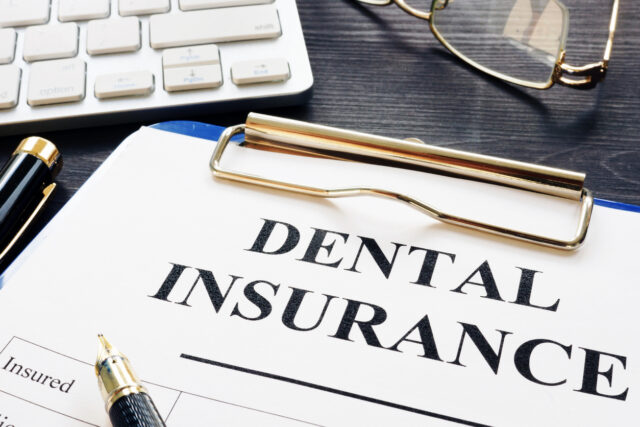
Your oral health is an important aspect of your overall health. Just as having health insurance is vital to cover costly medical expenses, having dental insurance can help to pay for expensive dental procedures. If you don’t currently have dental insurance, here are a few things that you’ll want to take into consideration before you sign up for a new policy.
7Your Budget
While there are some amazing dental health insurance policies out there that will cover several annual preventative care appointments as well as major dental procedures, they’re not always cheap.
The right dental insurance program for you is all determined by your budget. As with most types of insurance, you’ll be expected to pay a monthly premium to retain your insurance coverage. To determine what you can afford to pay out each month, you should take a look at your budget. See what amount will allow you to still be comfortable but allow you to ensure that you’re covered for your dental needs.
6The Dentist That You’ll Be Using

If you already have a dentist that you prefer to go to, then you likely want to purchase a dental health insurance plan that allows you to see that dentist. Different types of policies have different restrictions on what dentists they cover and which ones they don’t. For example, an HMO dental plan doesn’t cover out of network dentists.
So, if your dentists aren’t in their network, you’ll be paying out of pocket for the visit. Other types of plans such as a PPO will cover any dentist you want to see, however, you may have to pay upfront and get reimbursed. You can go here to compare the different types of plans that are available. Knowing what insurance your dentist takes will make a world of difference in selecting the right policy for you.
5Understand The Fees Terminology
It’s not uncommon for those unversed in dental health insurance to simply look for the plan with the cheapest monthly premium. This can be a real mistake as many of these plans come along with high co-pays and deductibles.
By understanding the various terminology used for the fees associated with a dental insurance plan, you can better determine which one is going to be right for you. Here are the common terms that you should know to better assess dental health policies:
4Copay And Coinsurance

When you go to the dentist, your insurance will cover a large portion of the fee. However, you’ll still be responsible for a copay or coinsurance. A co-pay is a set fee that you’ll be expected to pay per visit.
This fee is set for your general dentist and you’ll notice that there is likely a slightly higher co-pay for a visit to a dental specialist. Coinsurance, on the other hand, is a type of fee that is based on a percentage of the overall cost. You may be expected to pay anywhere from 15 to 25 percent of the cost of the visit as your fee.
3Deductible
Most people are familiar with a deductible in the form of car insurance. Basically, for your insurance coverage to kick in, you’ll be responsible for paying a set sum of money out of pocket. This is typically broken down by the type of procedure that you’ll be undergoing.
2Maximum Annual Cap Limit

Your dental health plan may include a maximum annual cap limit. This is the maximum amount of money that your dental insurance company will payout for the entire year. This amount is going to vary depending on the plan that you purchase. Not all dental health insurance plans institute an annual cap limit.
1Know What’s Not Covered
Dental health plans tend to be very specific with the types of procedures that they won’t cover. Understanding what these are can help you to better decide if a specific insurance policy is going to be right for you. For example, if you know that your child is likely going to need braces, you don’t want to pick a dental insurance policy that doesn’t cover braces.
Rather, you want to ensure that the most likely procedures that you and your family will undergo are actually covered under the dental insurance policy.
If you don’t currently have dental health insurance, you should be considering purchasing it. There are many factors that you’ll need to consider along the way. The top few are just some of the most important.







